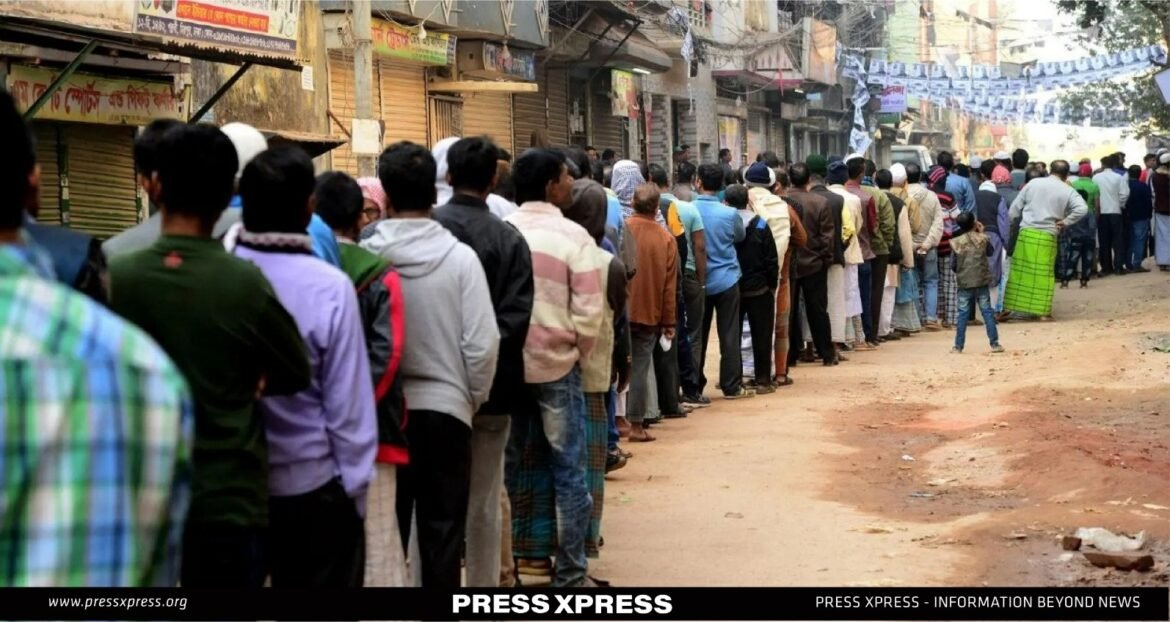As Bangladesh anticipates its 12th National Election, the air is thick with optimism as political leaders from various parties express their hopes for a free, fair, and inclusive electoral process. Minister, Ministry of Road Transport and Bridges and General Secretary of Awami League, Obaidul Quader, recently conveyed, “The people are now completely oriented towards the election; there will be a record voter turnout this year.” This sentiment echoes across party lines, with multiple leaders making similar comments.
You Can Also Read: Experts Delve into Implications of 12th National Elections for Sovereignty and Progress
Quader’s statement is mirrored by statements of various members of other parties. Notable amongst them, Trinamool BNP Secretary General recently expressed his confidence in a free and fair election, stating, “Prime Minister Sheikh Hasina had a meeting with us where she expressed her desire for a fair election, which she will ensure”. Such mirroring comments from different party leaders underscore an atmosphere of inclusivity and democratic practice.
A Plethora of Candidates in a Vibrant Democracy
In a remarkable display of political fervor, the 12th Parliamentary election has attracted a diverse range of candidates eager to serve their constituencies. From established parties like Awami League and Jatiya Party to newcomers like Trinamool BNP, and even independent candidates and BNP defectors, the nation is immersed in a festive electoral atmosphere. The significant exodus of BNP defectors opting to contest underlines the fairness of the government in upholding a free and fair election.
The extensive array of candidates from various political backgrounds underscores the vibrancy and health of Bangladesh’s democratic landscape. The presence of contenders from both established and emerging parties, as well as independent candidates and BNP defectors, indicates a democratic space that is open and inclusive.
A staggering 2,713 candidates have submitted their nomination papers for the 300 parliamentary seats, defying the violent campaign of BNP-Jamaat targeted at derailing the upcoming election and destroying the democratic continuity. With an average of nine candidates vying for each seat, this election showcases unprecedented diversity, challenging assertions by BNP-Jamaat regarding the credibility of the upcoming polls.
Government’s Efforts
The commitment of the government and election commission to ensuring a transparent and secure electoral environment is evident. The proactive security measures, and EC’s tough stand on violators of Electoral code of conduct; coupled with the diverse candidate pool and competitive atmosphere, showcase a dedication to upholding democratic values and ensuring the continuity of a democratic tradition in Bangladesh.
More Candidates, More Competition
The abundance of candidates competing for each seat, averaging at nine, is a historic phenomenon in Bangladesh’s electoral history. This surge in competition dismantles claims casting doubt on the legitimacy of the election. Moreover, it serves as a potential catalyst for increased voter turnout.
With more candidates per seat, the landscape of political campaigning is transformed, compelling contenders to intensify their efforts to connect with voters. This heightened engagement is poised to translate into a surge in voter participation, as each candidate strives to mobilize their support base towards polling centers. Coupled with the government and election commission’s unwavering commitment to ensuring a secure election environment, the stage is set for a potentially record-breaking voter turnout.
Turnout Indicator of a Robust Democracy
Historically, a higher voter turnout correlates with a more inclusive and healthy democracy. It signifies a diverse array of citizens actively participating in the democratic process, thereby contributing to a fair representation of the populace in the post-election government. If the optimistic projections of political leaders materialize into high voter turnout, it could solidify and reinforce the democratic practices in Bangladesh.
In essence, a greater number of candidates and the ensuing competition not only dispel skepticism surrounding the election’s legitimacy but also paves the way for a democracy that thrives on inclusivity and active civic participation. The forthcoming election has the potential to set a precedent for a robust democratic tradition in Bangladesh, bolstered by the government’s commitment to ensuring a transparent and fair electoral process
Government’s Commitment to Democratic Continuity
The multitude of candidates and the spirited competition they bring to the electoral arena paint a positive picture for the 12th National Election in Bangladesh. The government’s dedication to upholding democratic values is evident in the diversity of candidates and the measures taken to ensure a secure voting environment. As the nation braces for a potentially historic voter turnout, there is a palpable sense of optimism that this election will not only be a testament to the strength of democracy but also pave the way for a more inclusive and representative government.


